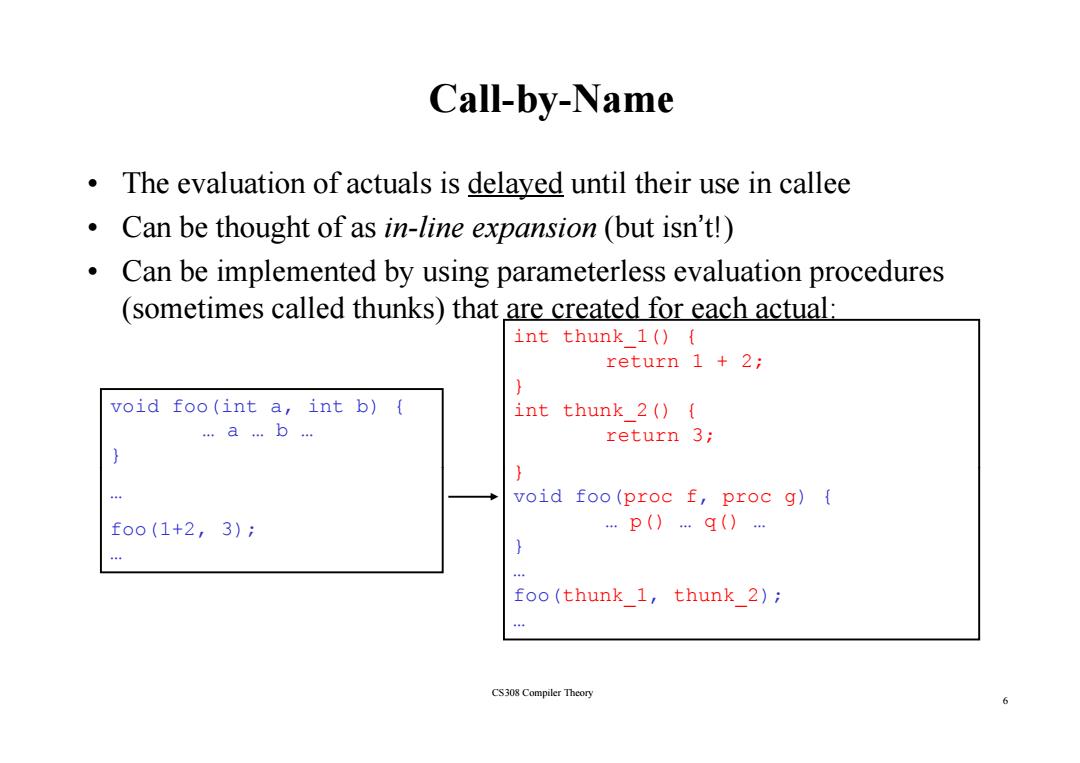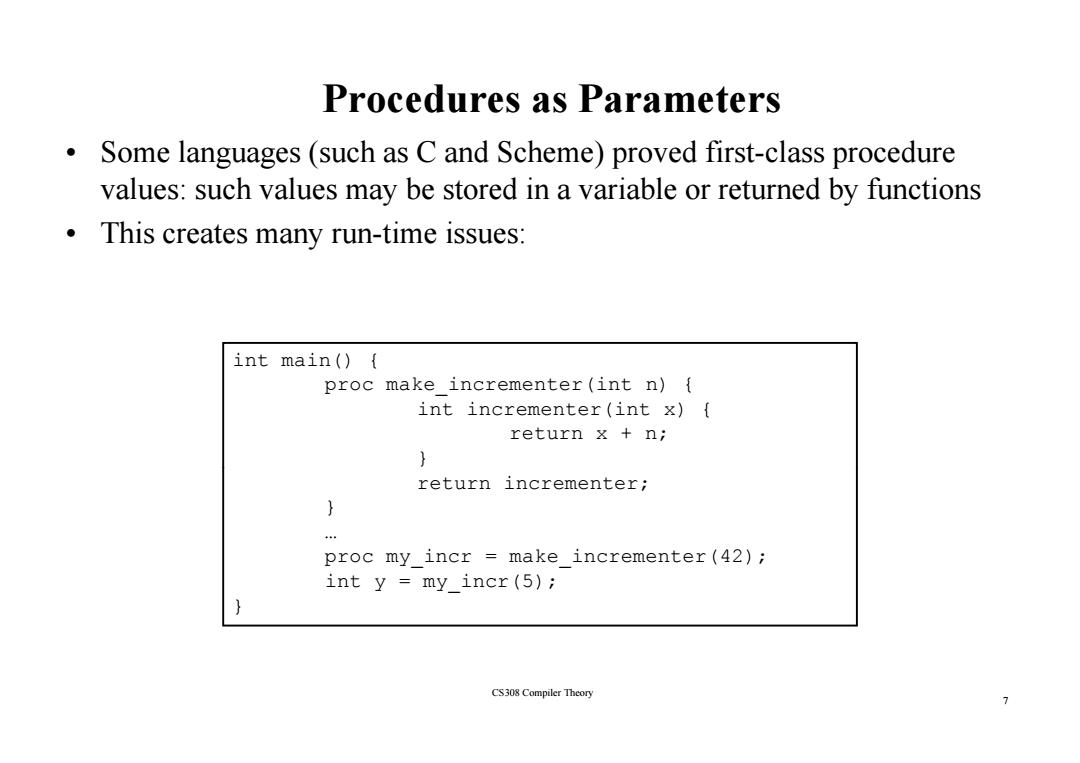
Call-by-Name The evaluation of actuals is delayed until their use in callee Can be thought of as in-line expansion (but isn't!) Can be implemented by using parameterless evaluation procedures (sometimes called thunks)that are created for each actual: int thunk 1()( return 1 2; } void foo(int a,int b){ int thunk 2()( …a…b… return 3; } } void foo(proc f,proc g){ fo0(1+2,3); …p()…q()… foo(thunk 1,thunk 2); CS308 Compiler Theory 6
Call-by-Name • The evaluation of actuals is delayed until their use in callee • Can be thought of as in-line expansion (but isn’t!) • Can be implemented by using parameterless evaluation procedures (sometimes called thunks) that are created for each actual: int thunk_1() { return 1 + 2; } void foo(int a, int b) { … a … b … } int thunk_2() { return 3; } … foo(1+2, 3); void foo(proc f, proc g) { … p() … q() … } … … foo(thunk_1, thunk_2); … 6 CS308 Compiler Theory

Procedures as Parameters Some languages(such as C and Scheme)proved first-class procedure values:such values may be stored in a variable or returned by functions This creates many run-time issues: int main(){ proc make incrementer(int n){ int incrementer(int x){ return x n; 3 return incrementer; } proc my incr make incrementer(42); int y my incr(5); CS308 Compiler Theory 7
Procedures as Parameters • Some languages (such as C and Scheme) proved first-class procedure values: such values may be stored in a variable or returned by functions • This creates many run-time issues: int main() { proc make incrementer(int n) { proc make _ incrementer(int n) { int incrementer(int x) { return x + n; } return incrementer; } … proc my incr make incrementer(42); proc my _ incr = make _ incrementer(42); int y = my_incr(5); } 7 CS308 Compiler Theory